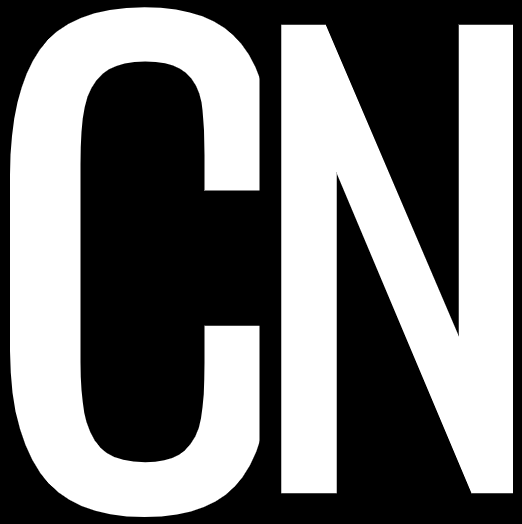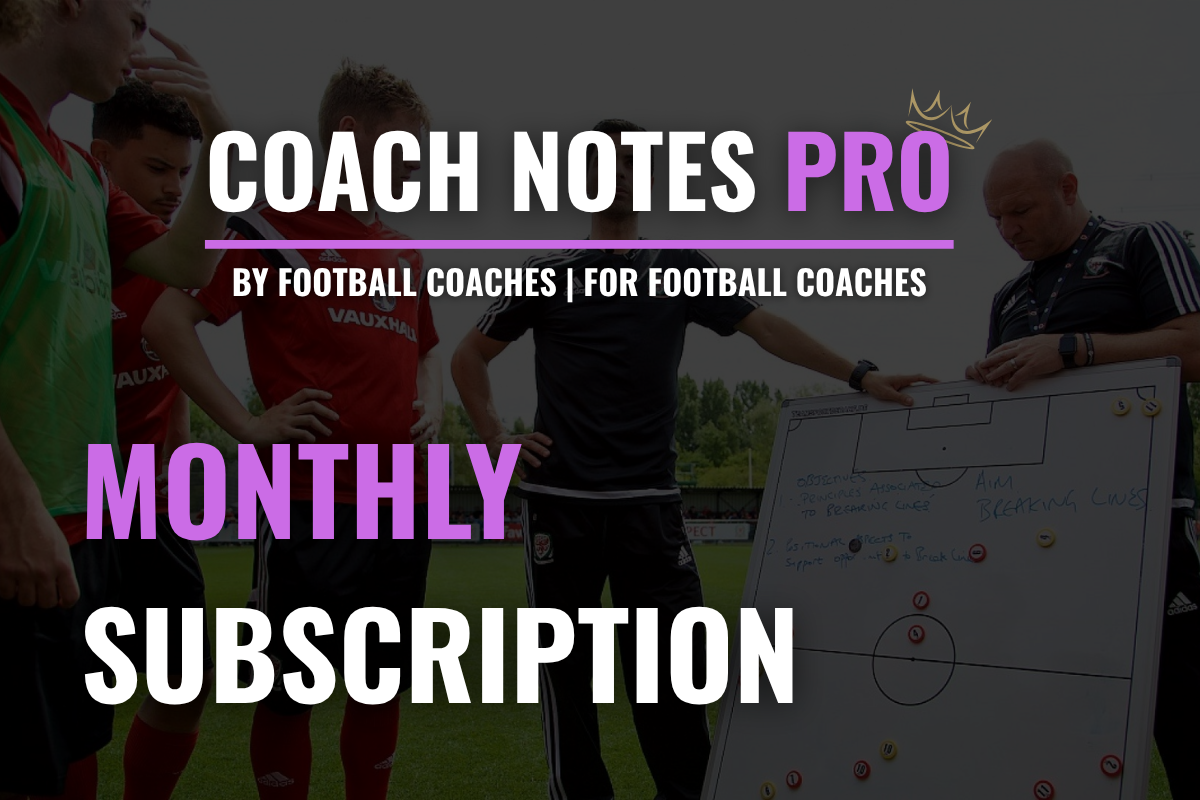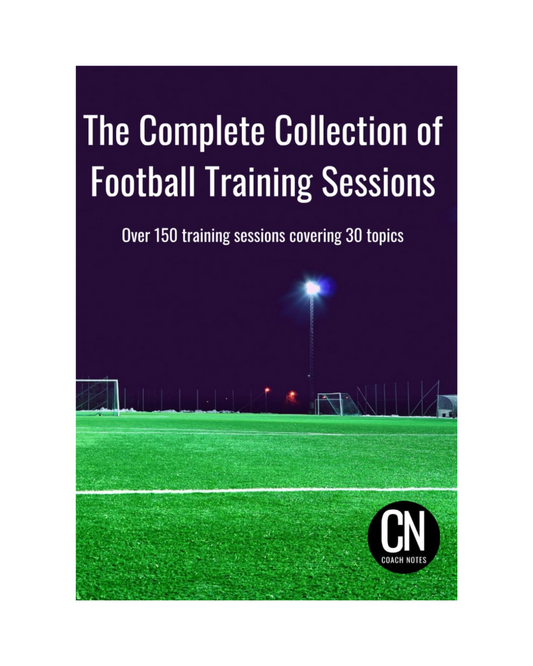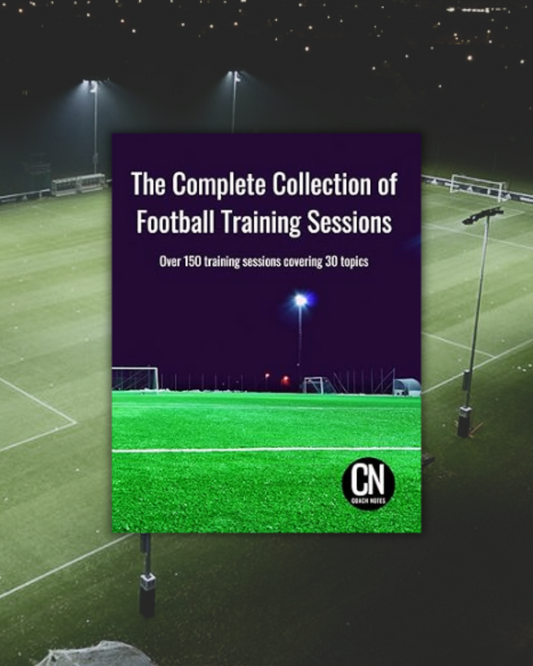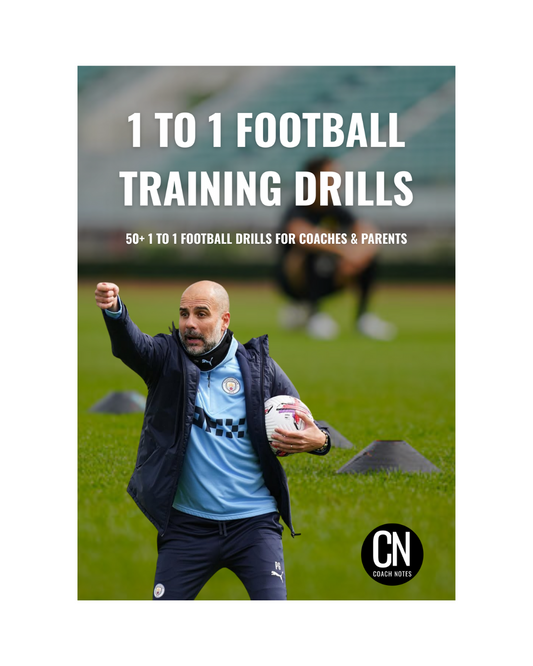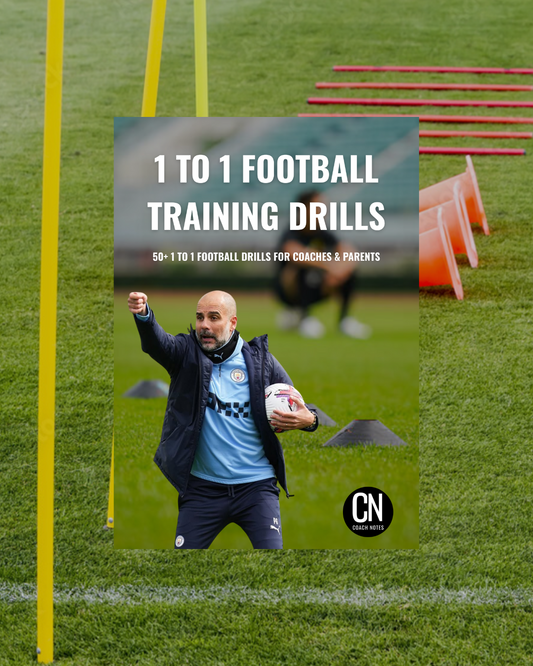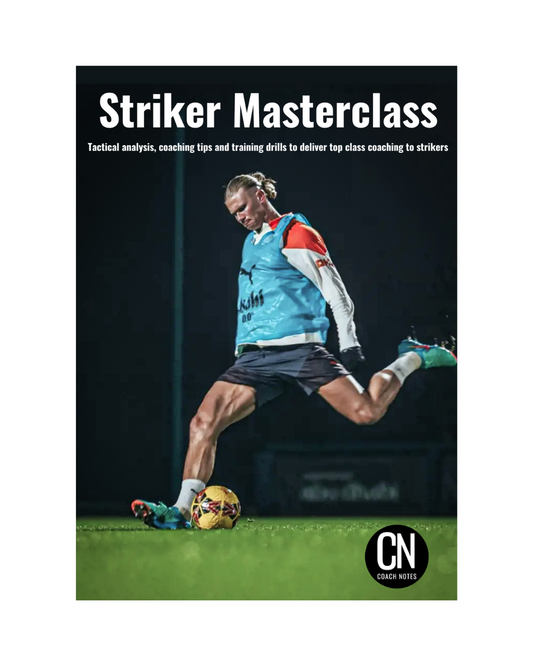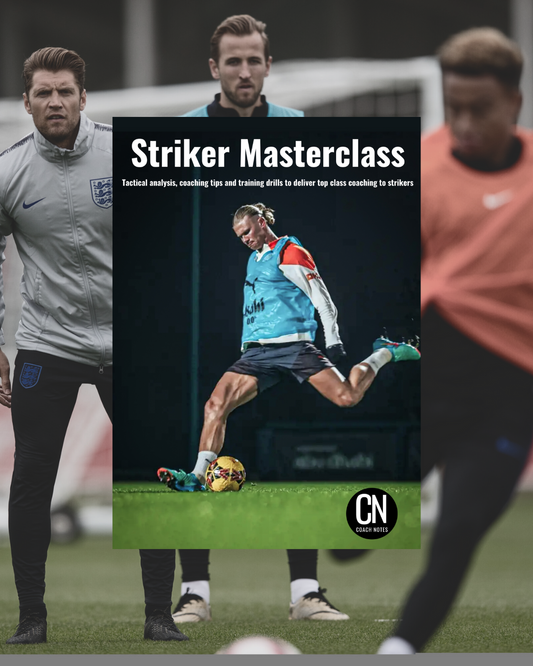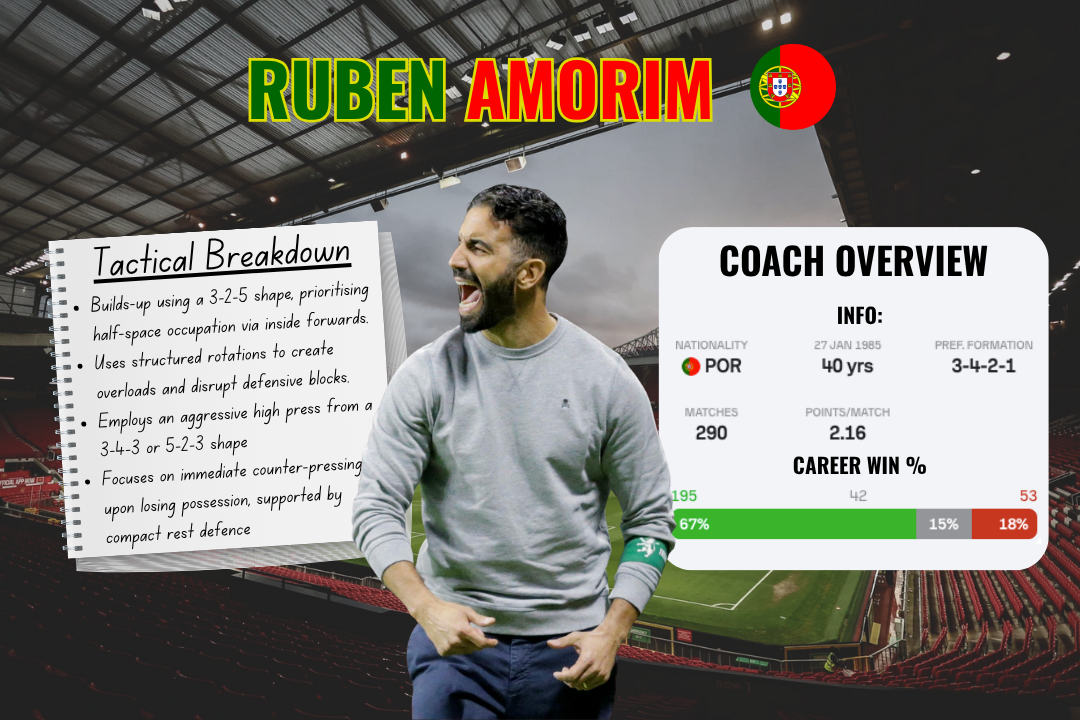
Ruben Amorim
Share
👤 Coach Bio
Rúben Amorim is part of the new generation of progressive Portuguese coaches, known for tactical flexibility, a bold approach to possession play, and modern pressing structures. A former midfielder, he played mainly for Belenenses, Braga and Benfica before moving into coaching in 2018.
Amorim first gained attention with Braga, where he demonstrated his clear tactical identity in a short but successful spell. His move to Sporting CP in 2020 proved transformative. He led Sporting to their first Primeira Liga title in nearly two decades, implementing an aggressive 3-4-3 shape with positional rotations and structured pressing.
His modern coaching methods have earned him comparisons to elite European coaches. In 2024, he was appointed Manchester United manager, tasked with modernising the club’s tactical identity.
🧩 Playing Philosophy
Rúben Amorim’s philosophy revolves around structured dominance through flexible possession play, high pressing, and fluid rotations. He seeks to control both the ball and space, using a mix of structured positional play and dynamic movement.
At the heart of his philosophy are three key pillars:
- Ball retention to control rhythm and disorganise opponents.
- Aggressive pressing to recover possession quickly.
- Rotational patterns to unbalance defensive blocks.
Unlike strictly possession-focused coaches, Amorim also values verticality and transitional threat. His system blends patient circulation with the ability to attack space efficiently when the moment arises.
🔍 Style of Play
In Possession
Amorim typically builds his attack using a 3-2-5 shape in possession.
- Build-Up: Play starts with a back three, supported by two central midfielders. Wing-backs push high and wide, while the inside forwards occupy half-spaces. Amorim encourages his side to build patiently when possible but progress vertically when central channels open.
- Midfield Dynamics: Central midfielders provide passing options while facilitating rotations with dropping forwards or advancing wing-backs. Amorim’s system is heavily rotational, with players swapping positions to disrupt marking schemes.
- Final Third: The 3-2-5 shape allows multiple players to arrive in the box. Wide players stretch the back line while underlaps and third-man runs attack inside channels.
Amorim’s sides focus on breaking blocks via overloads in the half-spaces and rotations between wing-backs and inside forwards.
Out of Possession
Amorim’s teams defend using an aggressive pressing strategy, usually starting from a 5-2-3 or 3-4-3 shape.
- High Press: The front three press the ball aggressively, with wing-backs pushing high to lock opponents wide. Amorim’s pressing structure is both man-oriented and space-focused, aiming to block central progression.
- Mid-Block: When unable to press, the team drops into a compact 5-2-3 mid-block, with wing-backs dropping back into a five-man defensive line.
- Compactness: The focus is on central compactness, forcing opponents into wide areas where pressing traps are set.
Transitional Moments
- Defensive Transitions: Amorim emphasises immediate counter-pressing, particularly in central areas. Players are coached to collapse around the ball carrier, aiming for fast regains.
- Attacking Transitions: On regaining possession, his teams seek vertical passes into the feet of forwards or wing-backs in space. Transitions are structured, supported by trailing midfielders and overlapping wing-backs.
His sides are known for balanced transitions – aggressive when needed but always retaining structural protection through rest defence.
⚽️ Drills to Coach Like Rúben Amorim
Amorim’s training approach is principle-led and detail-driven. Sessions are structured around possession, pressing mechanics, and transitional drills.
Positional Training: Use of rondos, positional play games, and shadow play to develop understanding of spatial occupation and build-up patterns.
Drill 👉 Playing Out from the Back - Deep Zone Rondo
Patterned Rotations: Drills include rehearsed positional rotations to create overloads and prepare players for third-man runs.
Drill 👉 Third Man Runs to Create Overloads
Pressing Drills: Sessions often focus on pressing triggers, player distances, and group pressing angles.
Drill 👉 Pressing Traps – Sideline Trap Game
Coaches looking to emulate Amorim must focus on synchronising player movements and ensuring clarity in pressing roles and positional rotations.
👥 Player Profiles
Amorim’s system demands technically proficient, tactically intelligent, and physically capable players.
- Centre-Backs: Must be composed in build-up and comfortable defending large spaces. Ball-playing ability is key.
- Wing-Backs: One of the most important roles. Wing-backs must have stamina, technical skill, and positional intelligence to invert, overlap, or stretch play.
- Midfielders: Double pivots need tactical awareness, passing range, and the ability to cover spaces in transitions.
- Inside Forwards: Players in half-spaces must be creative, able to link play, and rotate fluidly with wing-backs.
- Striker: The forward acts as a focal point, linking play and attacking space. Must be mobile, intelligent and technically clean.
Amorim favours adaptable players who can switch roles fluidly while maintaining structure.
🔑 Key Takeaways for Coaches
- Implement a 3-2-5 build-up structure to create central control and attacking width simultaneously.
- Coach rotations to break blocks – train players to move intelligently, not randomly, to unbalance opponents.
- Prioritise structured pressing systems – build pressing schemes with clear triggers and role clarity.
- Balance attacking play with rest defence – maintain positional protection to guard against counters.
- Use principle-led training sessions – avoid rigid formations and instead focus on adaptable, role-based coaching.
